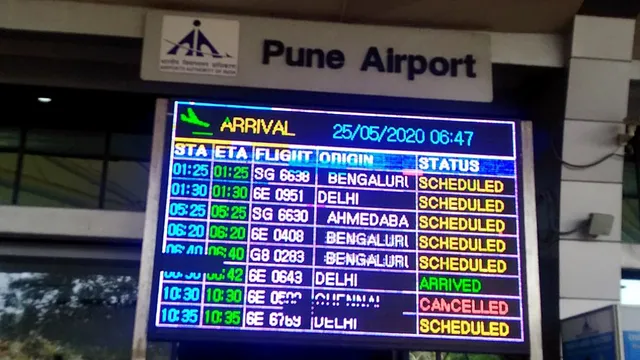- By Deeksha Gour
- Sun, 01 Jun 2025 07:00 PM (IST)
- Source:JND
Pune News: Pune International Airport has increased its daily civil flight capacity by 15 slots during peak hours, raising the total number of daily flight movements from 220 to 235. This step aims to reduce congestion and improve passenger convenience during busy travel times.
The announcement was made by Pune Member of Parliament and Minister of State for Civil Aviation, Murlidhar Mohol, on the social media platform X (formerly Twitter) on Sunday. He stated that, the cooperation of the Indian Air Force (IAF) in facilitating this expansion at the airport, which is shared between civil and military operations.
According to a Punekar News report, Airport has faced capacity challenges due to limited civil operating hours, as it operates alongside the IAF. Airlines and passengers have long requested more flexible scheduling to ease delays and congestion, especially during the morning and evening peak periods.
Officials from the airport and the aviation industry have welcomed the decision, seeing it as a positive step toward supporting Pune’s growth as a key travel hub. The increased slots are likely to make journeys smoother and faster for travellers, addressing one of the major bottlenecks faced in recent years.
ALSO READ: Pune Court Rejects Rahul Gandhi's Plea Seeking Savarkar Grand-Nephew's Maternal Lineage Information
In separate news, a court in Mumbai on Saturday dismissed Rahul Gandhi’s request for details about the maternal ancestry of Satyaki Savarkar, the grand-nephew of V D Savarkar, in connection with a defamation case filed against Gandhi. The complaint was based on Gandhi’s alleged controversial remarks about the Hindutva figure during a speech in London. Judicial Magistrate Amol Shinde ruled that the case solely concerns the alleged defamatory statements and not the family background of Himani Ashok Savarkar, Satyaki’s mother.
The defence had argued that information about the maternal lineage was essential, but the court found no relevance of this data to the case and saw no need for further inquiry. The magistrate rejected the application, stating it lacked merit.

